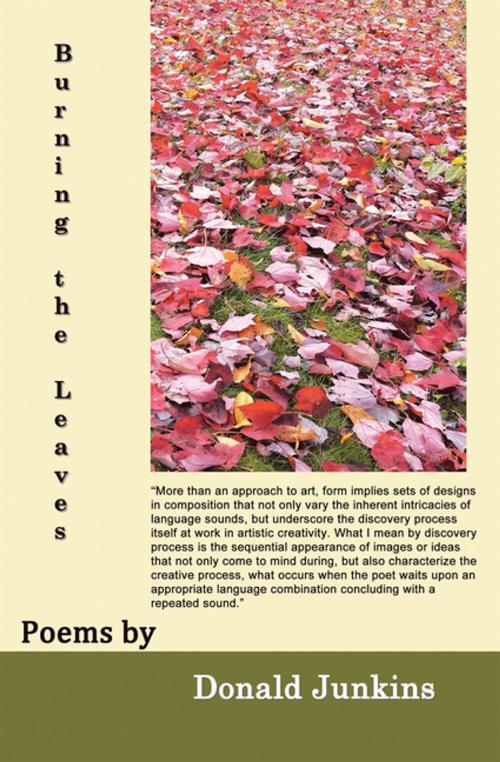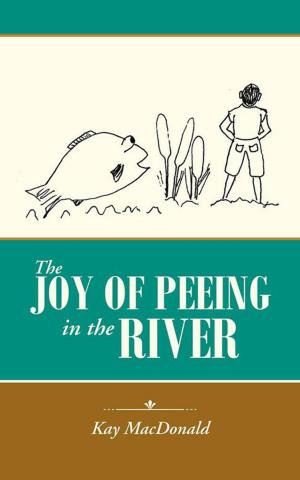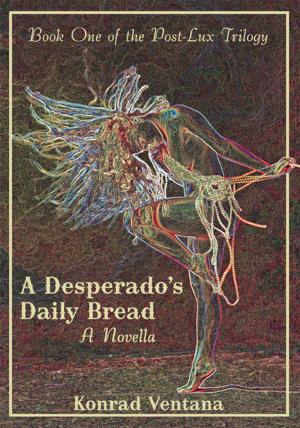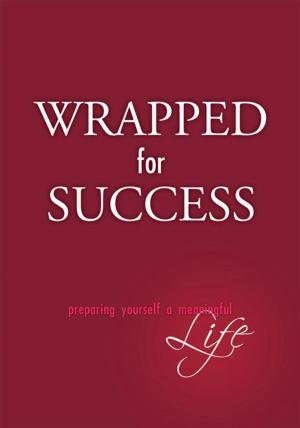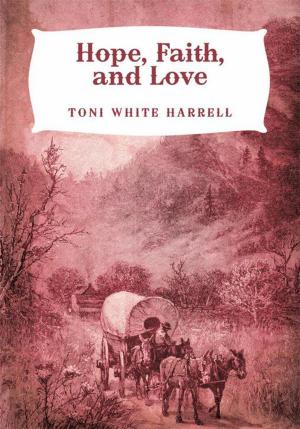| Author: | Donald Junkins | ISBN: | 9781532041402 |
| Publisher: | iUniverse | Publication: | February 1, 2018 |
| Imprint: | iUniverse | Language: | English |
| Author: | Donald Junkins |
| ISBN: | 9781532041402 |
| Publisher: | iUniverse |
| Publication: | February 1, 2018 |
| Imprint: | iUniverse |
| Language: | English |
For poets, form is a way to put pressure on the written word and keep the author within a dedicated framework. Form adheres to rules, and yet, the poet is freewithin the bounds of rhythm and rhymeto hone ideas or develop images. In prolific poet Donald Junkinss newest collection, he chooses the classic sonnet form to portray things observed over the years. Burning the Leaves is a book of poems aimed at meanings generated not only by immediate contexts but also by deeper themes spawned through relevant turns of phrase. In other words, similar sounds mayand, more often, may notdeepen the opportunity for meaning that would be otherwise unavailable to the ear and the eye. If rhyme and rhythm are just right, the experience of language is deepened. If it is off, the experience of the poem is doubly damaged. In the spirit of sonnets by Frost, Keats, and Spenser, Junkins focuses on his travels through Massachusetts, Maine, China, and beyond as he questions whether risks are worth taking in poetry and in life.
For poets, form is a way to put pressure on the written word and keep the author within a dedicated framework. Form adheres to rules, and yet, the poet is freewithin the bounds of rhythm and rhymeto hone ideas or develop images. In prolific poet Donald Junkinss newest collection, he chooses the classic sonnet form to portray things observed over the years. Burning the Leaves is a book of poems aimed at meanings generated not only by immediate contexts but also by deeper themes spawned through relevant turns of phrase. In other words, similar sounds mayand, more often, may notdeepen the opportunity for meaning that would be otherwise unavailable to the ear and the eye. If rhyme and rhythm are just right, the experience of language is deepened. If it is off, the experience of the poem is doubly damaged. In the spirit of sonnets by Frost, Keats, and Spenser, Junkins focuses on his travels through Massachusetts, Maine, China, and beyond as he questions whether risks are worth taking in poetry and in life.
